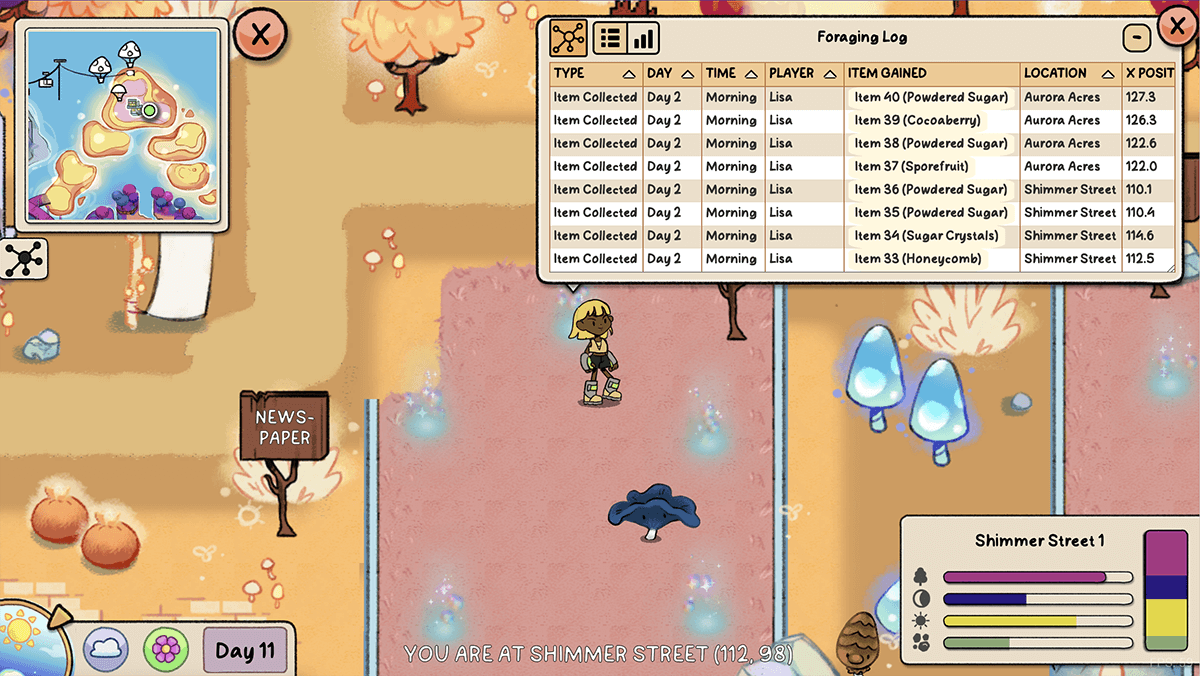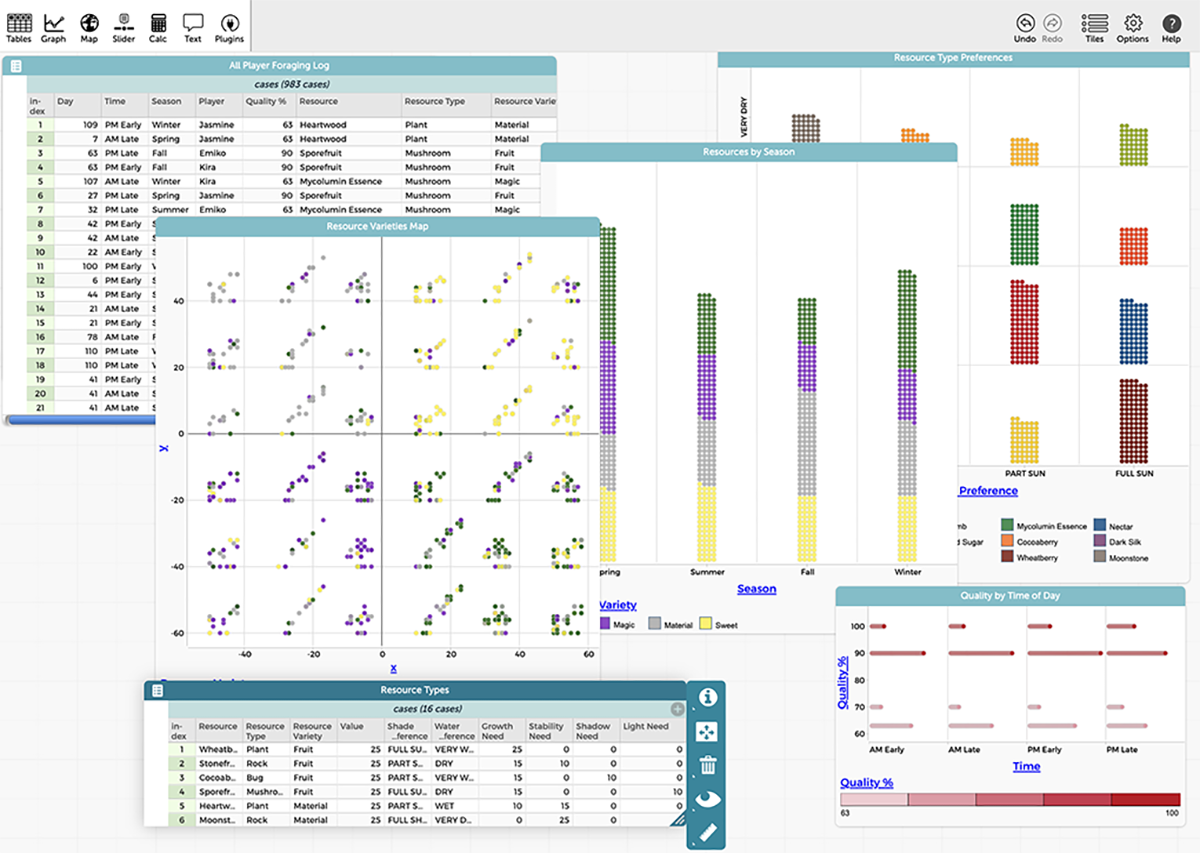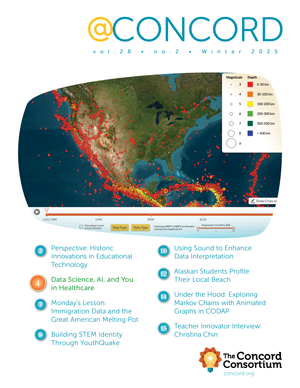Isles of Ilkmaar: A Multiplayer Game for Teaching Data Science
Data science is increasingly vital across fields, making middle school a critical time to cultivate data literacy. Our new National Science Foundation-funded research project is developing an innovative multiplayer game that immerses students in a vibrant world where their choices generate rich, analyzable data. We hope to illuminate promising pathways for engaging all students in the power of data science.
Designing a solution
Research has shown the importance of using data that connects to students’ lives and interests to foster active engagement. Games can situate data practices within narratively rich worlds where data becomes a tool for achieving personally meaningful goals. In the Isles of Ilkmaar, students’ actions in the game—from foraging for resources to interacting with the local creatures—all generate personalized data logs. This grounds data science in their unique gameplay experiences and goals.
What does data-rich gameplay look like? In the Isles of Ilkmaar, students navigate a rich ecosystem where their actions shape the world around them. As they play, the game generates a wealth of data, which becomes the fuel for both individual and collaborative investigations.
For instance, when some students want to bake the perfect cupcake to befriend a shy mushroom creature, they might analyze their own foraging records to find the highest quality ingredients. Noticing patterns in where and when certain resources appear, the students form hypotheses and adjust their foraging strategy (Figure 1). Or they might tap into the game’s broader data pool, comparing their ingredients and outcomes to those of their classmates. The game’s embedded data tools allow for easy querying and visualization, while a seamless integration with CODAP supports deeper explorations (Figure 2).


As the game narrative unfolds, students encounter more complex data challenges. A mysterious illness begins affecting the creature population, spurring students to role play as a medical team. They collect data on symptoms, administer treatments, and track recovery rates. To identify the underlying cause, students must think critically about how to merge and analyze data across multiple contexts, from the health clinic to the creatures’ daily activities and diets.
These examples illustrate the kinds of authentic and purposeful data investigations the Isles of Ilkmaar aims to enable. Throughout their investigations, students engage naturally in the practices and thinking habits of data scientists. They learn to seek out sources of data, explore data to find patterns, and create visualizations to communicate their insights. By grounding data in an immersive, narrative-driven context with compelling goals, the game seeks to cultivate students’ data literacy and spark their interest in data science.
What’s next?
Our next stage of project research will focus on helping teachers leverage game-based learning to teach data science, while connecting it to disciplinary content and learning goals. If you are interested in exploring game-based data science learning with your students, sign up to be notified when the game is released (http://short.concord.org/lwo).
Lisa Hardy (lhardy@concord.org) is a research scientist.
This material is based upon work supported by the National Science Foundation under Grant No. DRL-2214516. Any opinions, findings, and conclusions or recommendations expressed in this material are those of the author(s) and do not necessarily reflect the views of the National Science Foundation.
